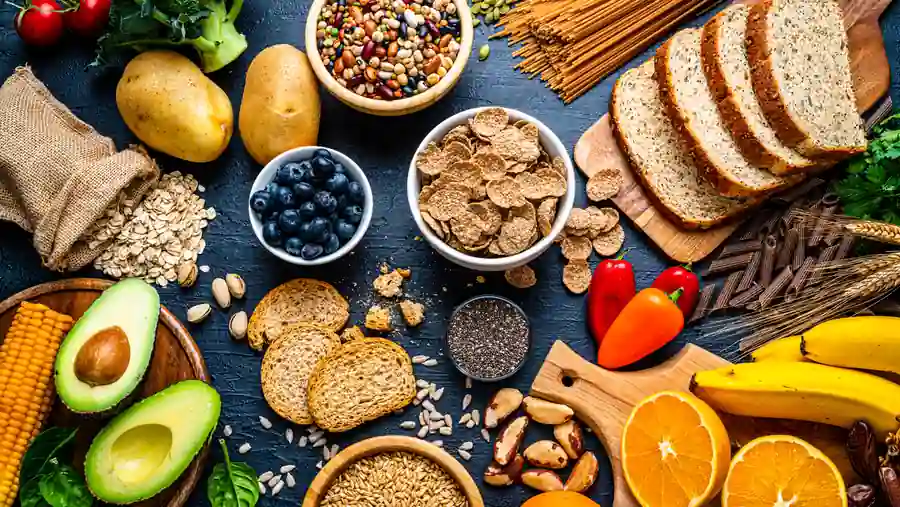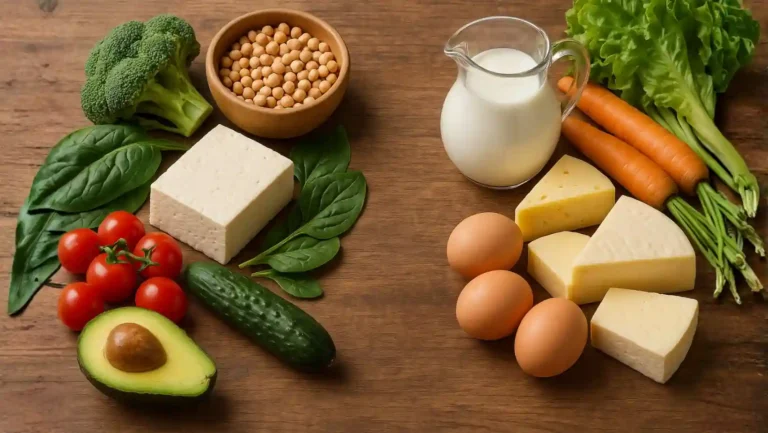Constipation happens when bowel movements become less frequent and stools get hard to pass. It can make you feel bloated, heavy, and uncomfortable. Most people face this problem occasionally, but for some, it turns into a daily struggle.
You can manage and prevent it using natural remedies for constipation. With small changes in food, fluids, and habits, your digestion can return to a natural rhythm without depending on strong laxatives.
What Causes Constipation?
Constipation starts when stool moves too slowly through the intestines, losing too much water along the way. This makes it dry, hard, and painful to pass. Many day-to-day habits contribute to it.
Low Fiber Intake and Dehydration
Fiber is what gives stool its bulk. When you eat very little fiber, your stool becomes small and hard. If you also drink too little water, your colon absorbs even more water from stool, making it dry and compact. Adults should aim for at least 25–30 grams of fiber daily and at least 2–3 liters of water.
Lack of Physical Activity
When your body is inactive, your intestines slow down too. Physical movement stimulates bowel contractions (the natural squeezing motion that pushes stool forward). Even short daily walks or light stretches can help stool move regularly.
Irregular Eating Habits and Processed Foods
Skipping meals, eating at odd times, and consuming too much processed food can slow down digestion. Packaged foods often lack fiber and contain additives that make stool firm and dry. A balanced eating schedule supports a healthy bowel rhythm.
Stress, Hormonal Changes, or Medications
Stress affects gut nerves and can tighten intestinal muscles. Hormonal changes, especially in women during menstruation or pregnancy, may also slow bowel movement. Some painkillers, antidepressants, and antacids have constipation as a side effect.
Underlying Digestive Conditions Like IBS
If constipation happens frequently or alternates with diarrhea, it might be linked to irritable bowel syndrome (IBS). This condition affects how your intestines move and can cause cramping or bloating. It’s best to get tested if constipation lasts more than a few weeks.
Home Remedies for Constipation Relief
Most cases of mild constipation can be eased with home remedies for constipation relief. These methods are simple, safe, and easy to try at home.
Start Your Day with Warm Water and Lemon
Drinking a glass of warm water with lemon on an empty stomach helps stimulate digestion. The warmth relaxes intestinal muscles while lemon’s citric acid encourages bowel activity. It also helps your liver produce bile (a fluid that aids digestion).
Try Olive Oil or Ghee with Milk Before Bedtime
One teaspoon of olive oil or ghee mixed with warm milk can lubricate your intestines. This remedy works especially well when taken at night, as it softens stool by morning.
Drink Herbal Teas Like Ginger or Senna
Ginger tea can calm your stomach and reduce bloating. Senna tea is a mild herbal laxative, best used for short-term relief. Avoid long-term senna use because it can make your intestines dependent on stimulation.
Use Natural Laxatives Like Prunes and Figs
Prunes and figs are among the most effective natural remedies for constipation. They contain sorbitol, a natural sugar alcohol that draws water into the colon. Eat four to six prunes or two figs daily for best results.
Add Flaxseeds or Chia Seeds for Gentle Relief
Flaxseeds and chia seeds are rich in soluble fiber. When soaked, they form a gel-like texture that softens stool and improves gut movement. Mix one tablespoon of soaked seeds into yogurt or oatmeal.
Dietary Remedies for Constipation
What you eat daily shapes how well your digestive system works. Making dietary remedies for constipation a habit helps prevent future problems.
Increase Fiber Intake from Whole Grains and Legumes
Whole grains like oats, quinoa, and brown rice provide insoluble fiber that adds bulk to stool. Lentils, beans, and chickpeas are packed with both soluble and insoluble fiber. A fiber-rich diet keeps bowel movements consistent.
Eat Fiber-Rich Fruits Like Apples, Pears, and Kiwis
Apples and pears contain pectin (a type of fiber that softens stool). Kiwi has an enzyme called actinidin that stimulates bowel contractions. Eating two kiwis daily has been shown in studies to improve stool frequency naturally.
Add Probiotic Foods Like Yogurt and Kefir
Probiotics are “good bacteria” that support digestion. Yogurt, kefir, and fermented vegetables like sauerkraut help balance gut bacteria, improving stool consistency. Combine them with prebiotic foods like onions and garlic for stronger effects.
Stay Hydrated Throughout the Day
Water keeps stool soft. Aim to drink water evenly throughout the day instead of all at once. Soups, fresh juices, and herbal teas count toward your daily intake too.
Avoid High-Fat and Processed Foods
Greasy and processed foods slow down digestion. Avoid excess cheese, fried foods, and white bread. Replace them with whole food alternatives.
Natural Ways to Treat Constipation
You can combine natural ways to treat constipation through regular habits that train your body to pass stool naturally.
Follow a Regular Meal Schedule
Eating meals at the same time daily supports your body’s digestive rhythm. Regular timing signals your gut to expect food and prepare for waste movement.
Practice Mindful Chewing and Slow Eating
Chew your food well. Digestion starts in your mouth. Eating slowly prevents bloating and gives your intestines enough time to absorb nutrients.
Include Warm Soups and Fluids in Your Diet
Warm fluids relax your gut muscles. Soups made from vegetables, lentils, and clear broths increase hydration and fiber intake simultaneously.
Maintain Balanced Gut Bacteria Through Diet
A diet rich in probiotics and prebiotics creates balance in your intestines. When good bacteria thrive, stool passes more smoothly and regularly.
Lifestyle Changes for Constipation Relief
Long-term relief depends on lifestyle changes for constipation relief. Consistency in daily habits is more effective than any quick fix.
Exercise Regularly: Walking and Yoga Help Digestion
Exercise keeps your intestines active. Even a 20-minute walk after meals boosts gut movement. Yoga poses like Pavanamuktasana (wind-relieving pose) and Malasana (squat pose) help release trapped gas and promote bowel movement.
Train Your Bowels to Maintain Regularity
Set a fixed time to sit on the toilet daily, preferably after breakfast. This trains your bowel reflex, helping your body maintain a predictable rhythm.
Avoid Holding Bowel Movements for Long Periods
When you ignore the urge, stool stays longer in the colon, losing water and becoming dry. Go as soon as you feel the need to prevent further hardening.
Manage Stress to Improve Gut Motility
Stress hormones affect your digestive system. Deep breathing, meditation, or a short walk after work can relax gut muscles and restore movement.
Ayurvedic and Herbal Remedies for Constipation
Traditional medicine offers several natural remedies for constipation that cleanse and nourish the digestive system gently.
Triphala Powder for Gentle Cleansing
Triphala is an Ayurvedic mix of three fruits: amla, haritaki, and bibhitaki. It supports bowel movement without cramping. Take half a teaspoon with warm water before bedtime.
Aloe Vera Juice for Smoother Digestion
Aloe vera has mild laxative properties. It coats the intestine, softening stool and easing passage. Start with two tablespoons daily and avoid overuse.
Senna Tea as a Short-Term Natural Laxative
Senna works by stimulating the colon’s muscles. Use it for no more than three days to avoid dependence or dehydration.
Fennel and Cumin Seeds to Relieve Bloating
Chew half a teaspoon of fennel or cumin seeds after meals. These spices reduce gas and aid digestion naturally.
How to Relieve Constipation Naturally in One Day
For quick help, combine fiber, water, and movement. Many people can relieve constipation naturally within a day using these steps.
Combine Fiber, Hydration, and Movement
Start your morning with warm water and lemon. Eat a fiber-loaded breakfast like oatmeal with kiwi and prunes. Walk for at least 20 minutes after meals.
Eat a Fiber-Loaded Breakfast with Warm Fluids
Fiber works best when paired with fluids. A bowl of oatmeal, a banana, and herbal tea can often trigger bowel activity the same day.
Perform Light Stretches or Abdominal Massage
Gentle belly massages or yoga stretches can help stool move through the colon. Use clockwise motions to follow the natural direction of your intestines.
Try Prune Juice or Soaked Raisins for Quick Relief
Drink a small glass of prune juice or eat a handful of raisins soaked overnight. Both act as mild laxatives.
Foods to Eat and Avoid for Constipation Relief
The foods you eat either help or worsen your symptoms. Here’s a quick reference:
| Category | Eat More Of | Avoid |
| Fruits & Veggies | Apples, pears, papaya, spinach, broccoli | Bananas (unripe), fried veggies |
| Grains | Oats, quinoa, barley, brown rice | White bread, refined flour |
| Proteins | Beans, lentils, peas | Red meat, cheese |
| Fluids | Water, soups, herbal teas | Alcohol, excess caffeine |
Balanced eating prevents stool hardening and supports natural bowel motion.
Constipation in Children and Older Adults
Constipation can affect anyone, but kids and seniors are more sensitive.
Gentle Natural Remedies Safe for Kids
Offer fruits like prunes, pears, and papaya. Make sure children drink enough water and move daily. Avoid stimulant laxatives unless advised by a doctor.
High-Fiber Foods and Hydration for Seniors
Older adults often have weaker gut muscles. Include soft-cooked vegetables, oatmeal, and soups. Encourage sipping water throughout the day.
Avoiding Overuse of Laxatives in Elderly People
Overusing laxatives can weaken natural bowel function. Use them only when other natural remedies for constipation fail.
Pediatric and Geriatric Care Precautions
If constipation comes with severe pain, blood in stool, or weight loss, consult a doctor. Children under two and elderly adults over seventy need special care.
When to See a Doctor?
Mild constipation improves with home care, but persistent or painful symptoms need medical attention.
If Constipation Lasts Longer Than 7 Days
See a clinician if you have no bowel movement for a week. Chronic cases need deeper evaluation.
Presence of Blood, Pain, or Severe Bloating
Blood in stool, intense abdominal pain, or severe bloating could signal a more serious issue.
Chronic Constipation or Sudden Bowel Changes
If your pattern suddenly changes or constipation alternates with diarrhea, it might indicate a digestive disorder.
When Home Remedies Don’t Provide Relief
If all home remedies for constipation relief fail after several days, a doctor can run tests to find the real cause.
Prevention Tips for Long-Term Relief
You can prevent constipation by making small but consistent choices each day.
Eat Fiber-Rich Foods Daily
Include vegetables, fruits, beans, and whole grains. Mix soluble and insoluble fiber for best stool texture.
Drink 2–3 Liters of Water Each Day
Hydration keeps stool soft and easy to pass. Carry a bottle and sip water regularly.
Maintain a Consistent Sleep and Meal Routine
A steady schedule helps your digestive system work predictably. Avoid eating late at night.
Incorporate Physical Activity into Your Day
Walk, stretch, or do light yoga. Physical activity strengthens bowel muscles naturally.
FAQs
How can I relieve constipation instantly at home?
You can relieve constipation naturally by drinking warm water, eating prunes, and walking for twenty minutes. These steps activate bowel movement quickly and safely.
Which foods help relieve constipation quickly?
Kiwis, prunes, apples, pears, and flaxseeds are top dietary remedies for constipation. They increase fiber intake and soften stool effectively.
What is the best drink for constipation relief?
Prune juice, lemon water, and herbal teas like ginger or peppermint are excellent home remedies for constipation relief that hydrate and stimulate digestion.
Are there safe herbal laxatives for constipation?
Triphala, aloe vera juice, and senna are considered safe when used short term. These natural ways to treat constipation should not replace healthy habits.
How do lifestyle changes improve bowel movement?
Daily walks, good sleep, and stress control are vital lifestyle changes for constipation relief that strengthen bowel function without medicine.
Can dehydration cause constipation?
Yes, dehydration is a major cause. Without enough water, stool becomes dry and painful to pass, leading to constipation.
How can I relieve constipation naturally without medicine?
Eat fiber-rich food, drink warm fluids, and stay active. These natural remedies for constipation help stool move without any drugs.
Is yogurt good for constipation relief?
Yes, yogurt with live cultures supports healthy gut bacteria. It improves stool frequency and texture naturally.
Can stress or anxiety trigger constipation?
Stress changes gut signals and slows bowel movement. Relaxation and deep breathing can help restore normal digestion.
When should I see a doctor for constipation?
If constipation lasts more than seven days, or if you see blood in stool or pain, consult a doctor promptly.

















Leave a Comment